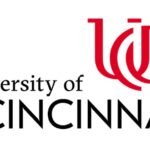About PhD Program,
The Writing Seminars offers a Master of Fine Arts in fiction and poetry. This two-year program is designed for students committed to the study and practice of literary writing at the highest level of accomplishment. MFA students work with nationally and internationally known faculty members to complete intensive literary seminars, small workshops, a first-year portfolio, and a second-year thesis. Students learn not only from permanent faculty but also from visiting speakers. The President’s Reading Series (Literature of Social Import), The Turnbull Lectures in Poetry, and other events allow students to meet world-renowned visiting writers such as Marilynne Robinson, Salman Rushdie, and Tracy K. Smith.
All students receive full tuition, health insurance, and a generous teaching fellowship, which will be $39,000 beginning next year (AY 2024-25). Some students work as assistant editors on The Hopkins Review. The program is extremely selective. MFA candidates are chosen on the basis of a manuscript evaluation, college transcripts, a “statement of purpose,” and letters of recommendation that testify to an ability and willingness to undertake serious study in the literary arts. Many of our MFA students find their first book published within three years of graduation, and they often win prizes such as Stegner Fellowships or grants from the National Endowment for the Arts.
Beginning with the MFA class of 2023, all graduating MFA students will have the option to apply for one-year junior lectureships, teaching three creative writing courses per semester. These positions come with full benefits.
PhD Program Degree Eligibility with GPA,
Students admitted to the MFA program enroll in two years of course work. The program requires two full years of residency in Baltimore. Students take two courses per semester: a writing workshop in poetry or fiction, and a second “readings in literature” course taught within the department. In addition, first-semester students take a third course in pedagogy, in preparation for their own teaching of undergraduate fiction and poetry in the spring of the first year. Poetry courses are offered by James Arthur, Dora Malech, Andrew Motion, Lauren Russell, Bruce Snider, and David Yezzi. Fiction courses are offered by Susan Choi, Danielle Evans, Katharine Noel, Eric Puchner, and Lysley Tenorio.
Students are paired with one member of the graduate faculty who serves throughout the MFA program as advisor in the student’s chosen genre, and who becomes the thesis director. At the end of the first year, students present a first-year portfolio, approximately half the length of the projected thesis, for faculty review. Students are given the opportunity to meet with the combined faculty in their genre for the “first year conversation,” in which their performance as writers, students, and teachers is discussed, and guidance offered for the second year.
The thesis, due in the second year, is the most important indication of the student’s accomplishment. A fiction student’s thesis is a substantial manuscript in the form of a novella, a novel excerpt, or a collection of fiction. Poets produce a thesis of collected poetry. In the second year, the student is assigned a second reader—a faculty member from a different genre—who serves on the thesis committee.
It is our belief that having a second language (at the intermediate level, at least) allows a writer the flexibility to experiment with the first language, and permits development of a literary voice through a deeper understanding of how language functions. Students may show foreign language proficiency in the first year by passing a placement exam or a translation test. Students also have the option of enrolling in a full year at any level of college-level foreign language study, to be passed no later than the end of the first semester of the second year. Students are also welcome to take courses in other departments outside The Writing Seminars, beyond our own requirements.
PhD Funding Coverage,
All students receive full tuition, health insurance, and a generous teaching fellowship, which will be $39,000 beginning next year (AY 2024-25). Some students work as assistant editors on The Hopkins Review. The program is extremely selective. MFA candidates are chosen on the basis of a manuscript evaluation, college transcripts, a “statement of purpose,” and letters of recommendation that testify to an ability and willingness to undertake serious study in the literary arts. Many of our MFA students find their first book published within three years of graduation, and they often win prizes such as Stegner Fellowships or grants from the National Endowment for the Arts.
Application Requirement,
Three recommendation letters
Writing sample
Statement of purpose (critique of work)
Transcripts
TOEFL or IELTS scores (for those applicants whose native language is not English)
Application Deadline,
Dec 15, 2024
Application Fee,
The application fee is $75.


